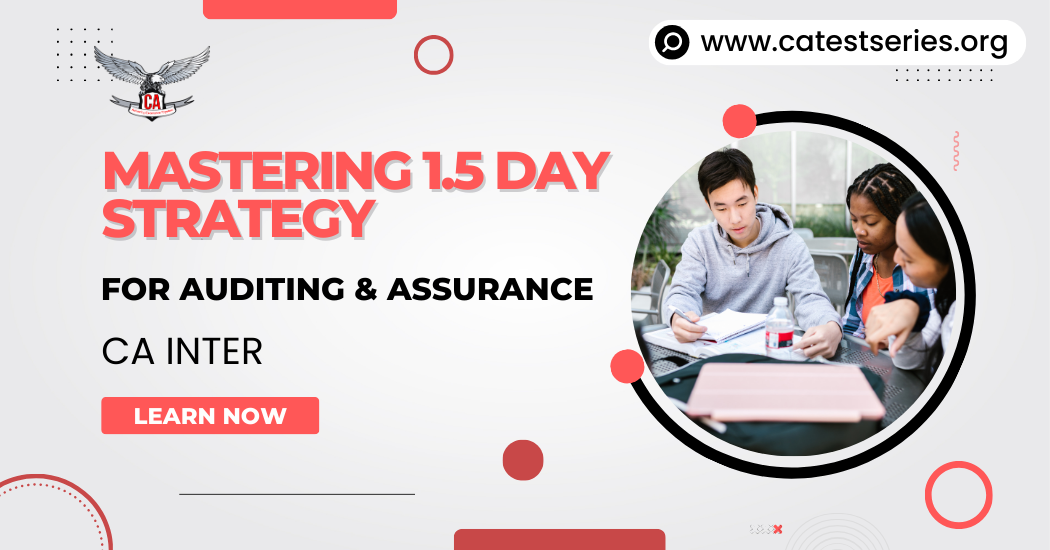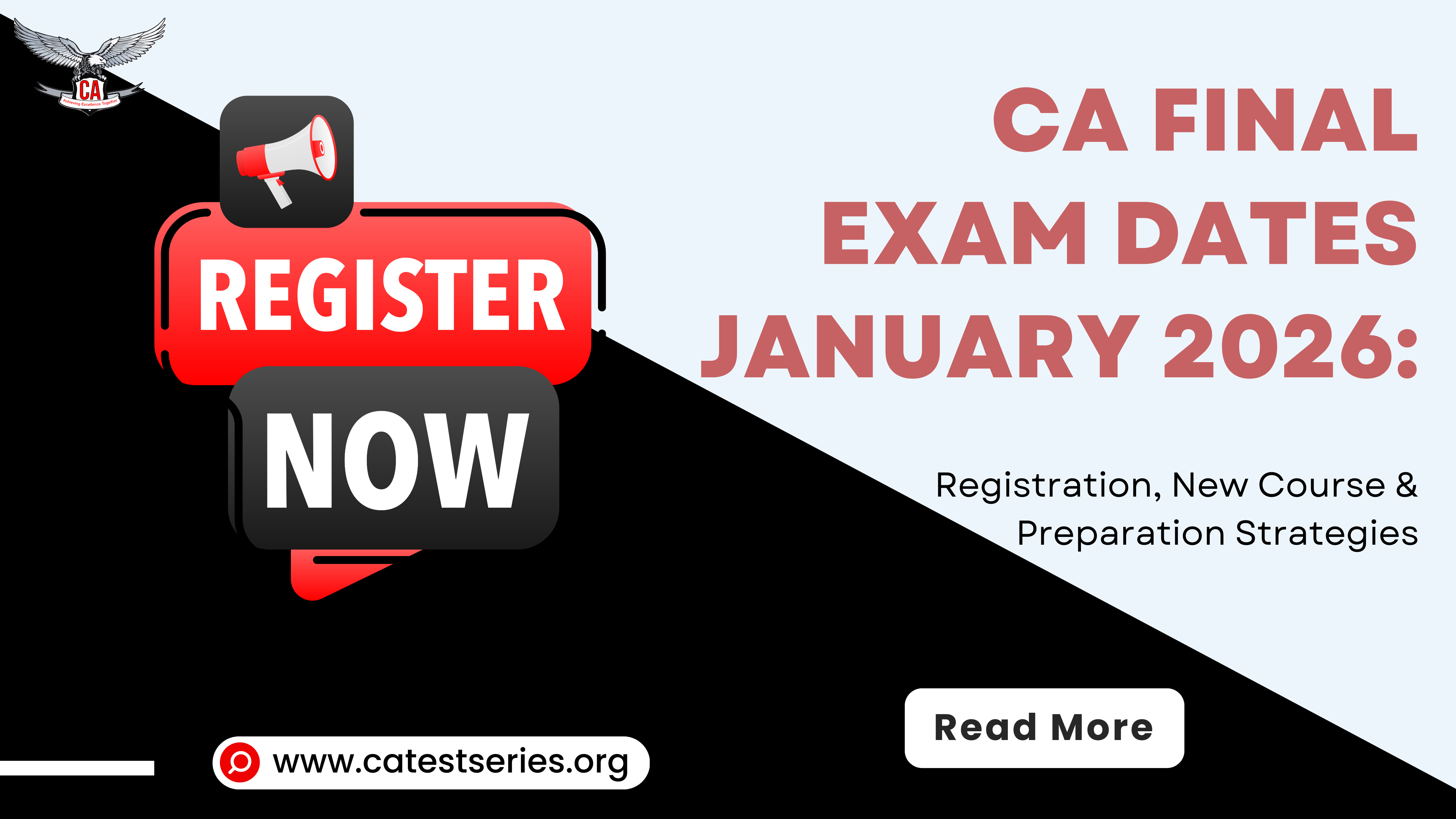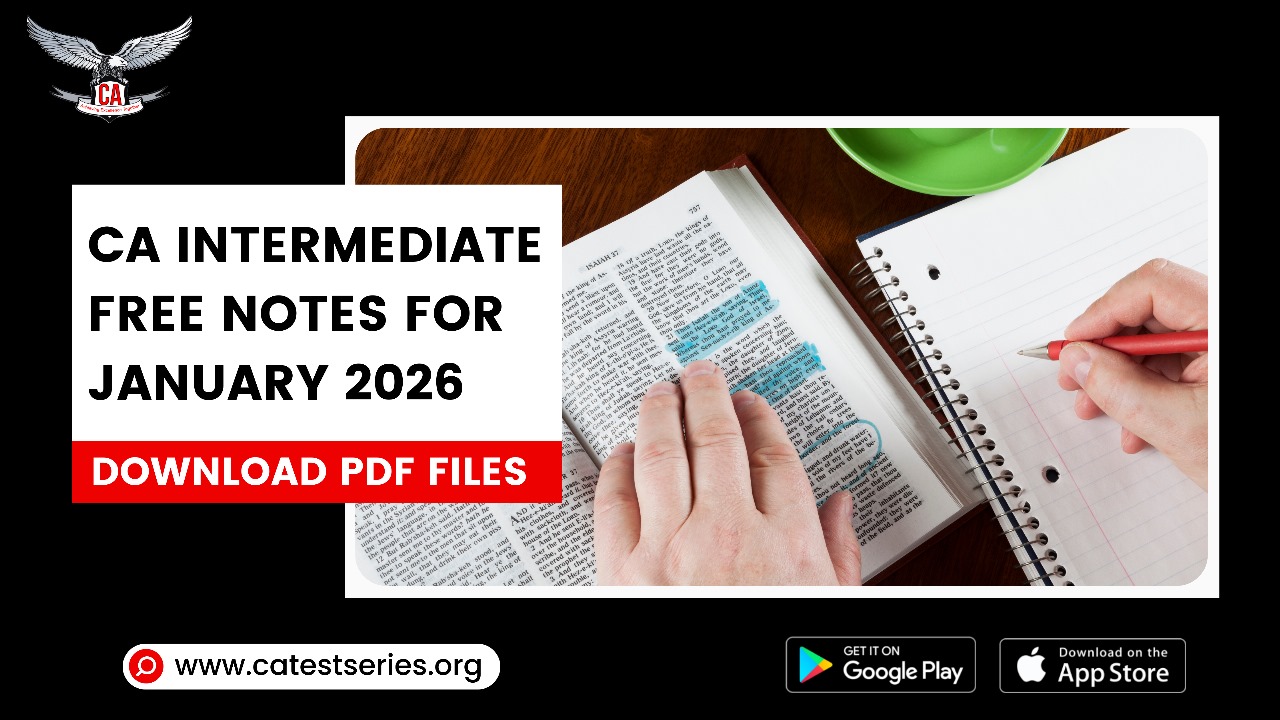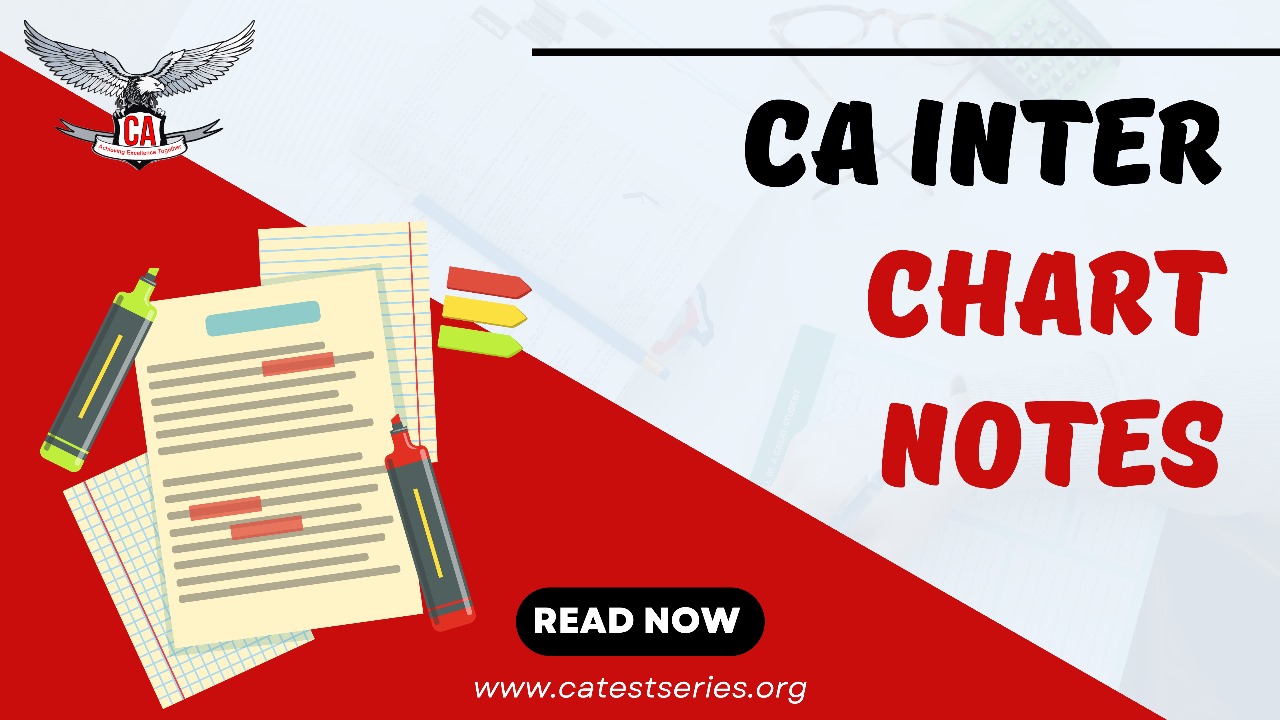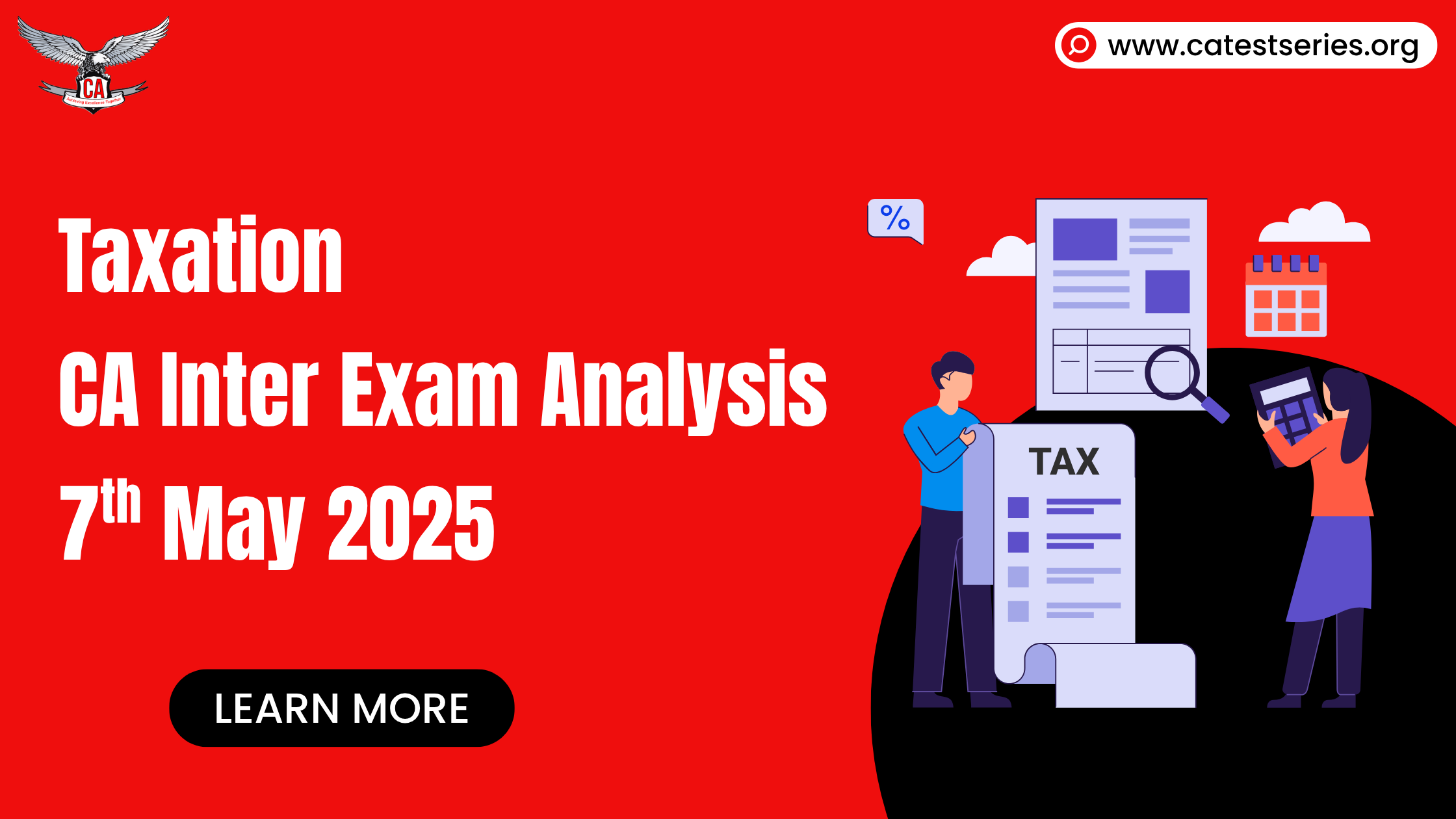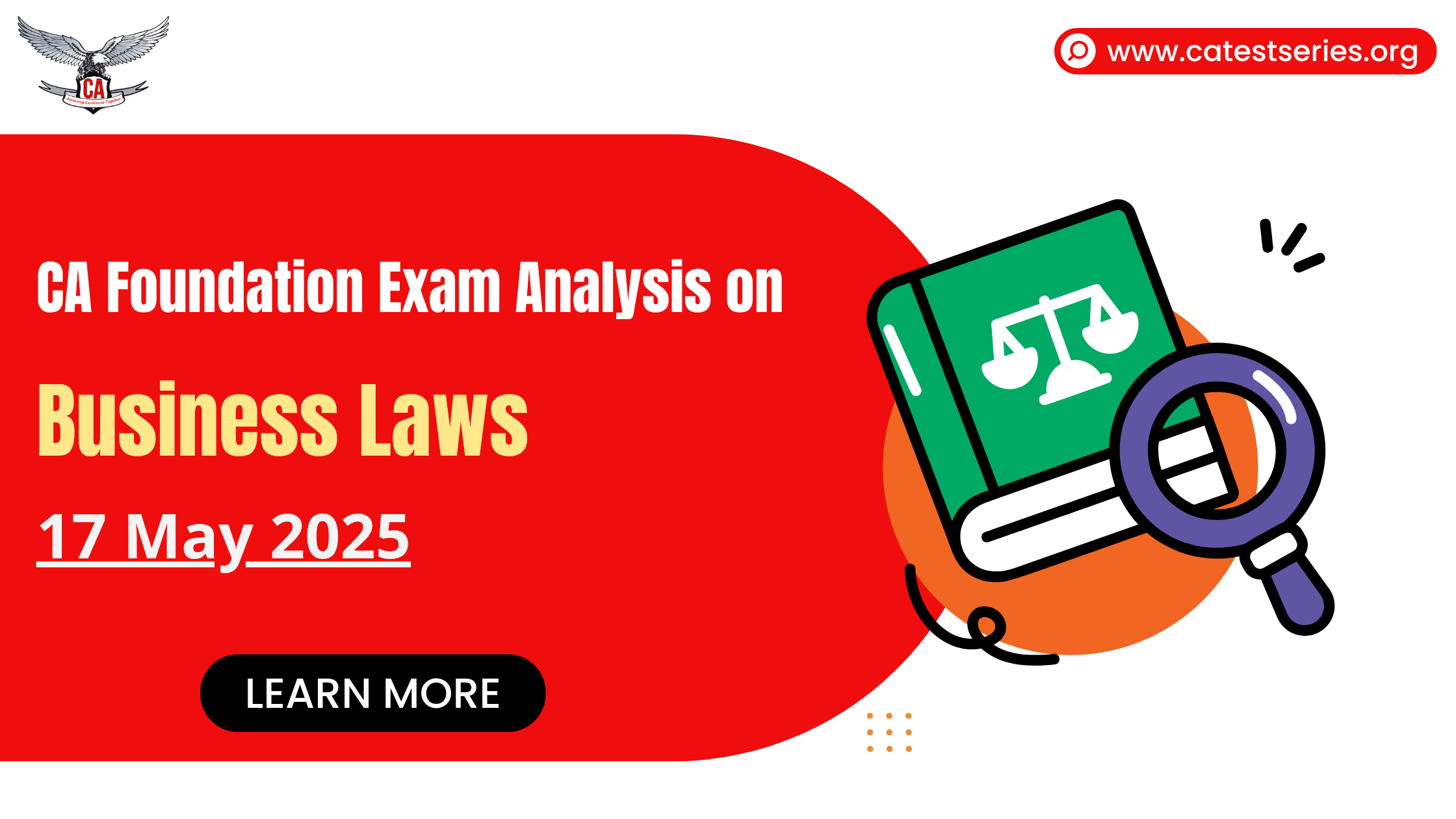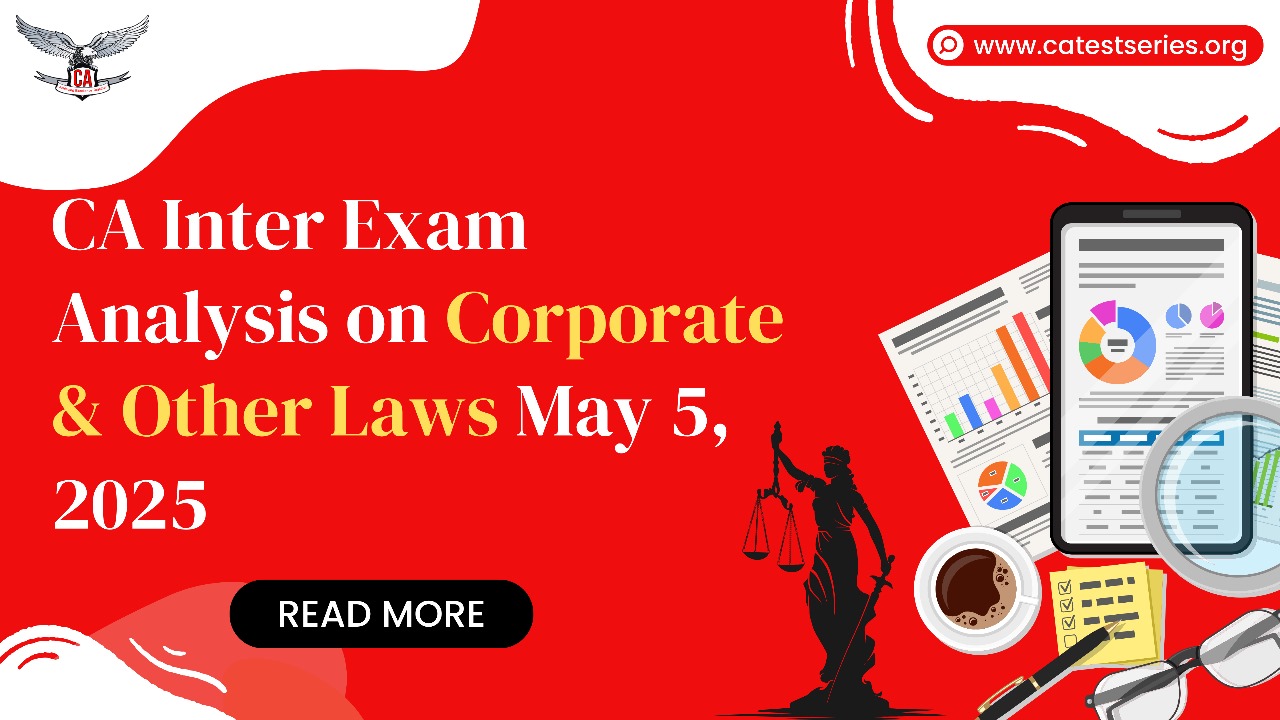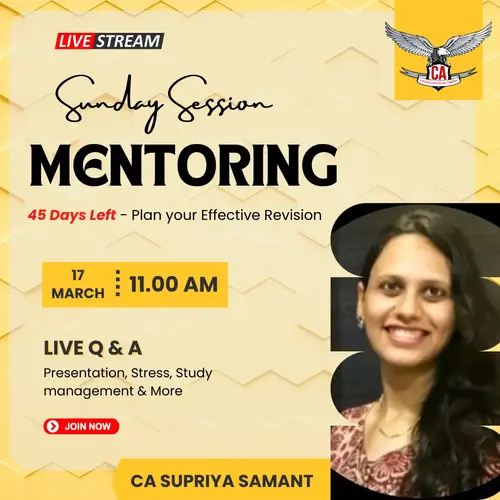CA Inter Audit and Assurance Last Minute Preparation | Important Questions & Topics
1.5-Day Strategy for Mastering Auditing and Assurance in the CA Intermediate
It is a challenging undertaking to prepare for CA Intermediate, particularly for areas like auditing and assurance. To begin with, the syllabus for CA Inter auditing and ethics is extremely extensive, requiring a thorough understanding that must be addressed methodically. As a result, most candidates find it difficult; however, even with just one and a half days until the test, adopting the correct strategy can be very beneficial.
It takes last-minute preparation in a way that ensures all the important topics have been covered, essential questions and topics are refreshed, and you will enter the exam hall with full confidence. There are some important points discussed below with a well-planned and practical approach.
What is the 1.5-Day Strategy?
This has been the favorite for so many years among CA students because it will help you utilize your time for revision without overwhelming yourself. It makes use of the 36 hours before the test to concentrate on organized topics, strategies for focused review, and ways to improve both your knowledge and test-taking abilities.
Step 1: Quick Overview and Strategy (First Hour)
When the 1.5-day begins, start with a brief overview of what is involved. Understand the syllabus, chapter weightage, and past exam trends. You will get an idea of where you need to invest your energy.
Action Points:
- Review the syllabus and take note of the chapters that are most important to you.
- Emphasize crucial definitions, examples, and concepts.
- Prioritize tasks according to their difficulties and your own benefits.
Pro Tip: Stress on SA and professional ethics. They are the areas of maximum weightage that come quite frequently in exams.
Step 2: In-depth Coverage of High-Yield Chapters (Day 1 Morning & Afternoon)
Having had an overview, move on to the high-yield chapters. Spend focused blocks of time on each topic and hope to cover around 60-70% of the syllabus by mid-afternoon on Day 1.
Refer to the table below for a clear representation of the 1.5-day strategy for Audit and Assurance (now Auditing and Ethics), designed to facilitate better understanding.
Time Slot | Topics to Cover | Strategy | Duration |
Day 1: Morning (4 hours, e.g., 8 AM - 12 PM) | - Nature, Objective, and Scope of Audit (SA 200, 210) | Read key SAs (focus on objectives, requirements). | 4 hours
|
Audit Strategy, Planning, and Programme (SA 300, 315, 320) | Revise definitions, audit process flowchart. | ||
- Audit Evidence (SA 500, 501, 505) | Solve 2-3 past paper MCQs per topic. | ||
Highlight risk assessment and materiality concepts. | |||
Day 1: Afternoon (4 hours, e.g., 2 PM - 6 PM) | - Audit Documentation and Sampling (SA 230, 530) | Skim the SA requirements, focus on practical examples. | 4 hours
|
Internal Control and Risk Assessment (SA 265, 402) | Practice 1-2 case studies on internal controls. | ||
Audit of Items of Financial Statements (Cash, Receivables, Payables) | - Revise vouching/verification techniques with mnemonics. | ||
- Attempt 5-6 past RTP questions. | |||
Day 2: Morning (3 hours, e.g., 8 AM - 11 AM) | Company Audit and CARO 2020 | Memorize CARO clauses, audit report formats. | 3 hours |
Audit Reports (SA 700, 705, 706) | Review key points from the special audit via summary notes. | ||
Special Audits (Govt., Bank, NGO) | Solve 3-4 past exam questions on reports. | ||
Quick Revision | Skim low-weightage topics (e.g., SA 299, ethics) |
Important Chapters to focus on more
Standards on Auditing (SA): This forms the body of your assignment, as questions relating to SAs can be asked in several forms. You have to concentrate on the outline, purpose, and uses of major SAs.
- Audit Planning, Documentation, and Evidence: In most practical situations, you are expected to remember all points discussed in this chapter.
- Risk Assessment and Internal Control: Understand the principles of risk assessment and internal control and how they impact the auditing process.
- Professional Ethics: Examiners always prefer it because it demands accurate memorization of the principles of ethics and their proper application in different scenarios.
- Company Audit: Questions with cases are usually relevant; try to understand legal obligations, the role of auditors, and statutory compliance.
Action Points:
- A summary chart and diagram can help quickly remember the key points.
- Refer to the previous years questions to identify the examiner attention areas.
- Recall standard phrases, especially for professional ethics, as they add accuracy to your answers.
Pro Tip: Use sticky notes to write down quick points or mnemonics. These will be useful for last-minute glimpses in the last hours before the exam.
Step 3: Practicing MCQs and Case-Based Questions (Day 1 Evening)
With MCQs also featuring in the CA exams, devote a couple of hours during the evening to practicing them. Case-based questions are highly effective for applying theoretical knowledge to real-world contexts.
Action Points
- Solve at least 50-60 MCQs covering key chapters.
- Attempt case-based questions, especially those that appeared in previous years and RTP (Revision Test Papers).
- Focus on clarity and speed; the more familiar you are with MCQs, the more comfortable you will be during the examination.
Pro Tip: Focus on familiar themes of MCQs across topics. Sometimes, questions come in hidden forms; therefore, you might have an edge if you are familiar with them.
End
The morning of Day 2 should be used to revise key topics and areas that require even greater strength. This would be the time to give more firmness to your thought process on high-weightage areas.
Action Points:
- Quickly revise the Standards on Auditing, which is crucial.
- Once again, go through Professional Ethics and Company Audit.
- You should give special focus, especially on chapter summaries, diagrams, and any handwritten notes you have made.
Pro Tip: Allocate the same amount of time for each chapter, such as 45 minutes of self-study, to ensure you retain all the material taught by the teacher.
Step-4: Self-Testing and Building up Confidence (Afternoon, Day 2)
After halfway through your day, your method of reading should shift toward testing. This would reinforce your existing knowledge and also help identify areas that need review before taking tests.
Action Items:
- You may try working on a sample paper or at least attempt some of the practice questions provided along with the sample papers.
- Give yourself time for each section so that you get an idea of the speed with which you can attempt it and a feel for the exam pattern.
- Test yourself on topics on which you felt weak. However, keep this brief and concise.
Pro Tip: never lose your confidence from small mistakes. Instead, learn from them for your final revision. Follow the study planner to achieve better results.
Step 5: Last-Minute Glance and Mind Relaxation (Day 2 Evening)
You should do all the major preparations during the evening of Day 2. Now, just give fleeting glances over key points, ethics guidelines, and any SAs to which you may have had some kind of attachment in the past. At no stage should you look for something new, as this can confuse you.
Items to be acted on
- Give cursory glances over flashcards or key points.
- List out essential phrases/standard clauses for one to-do list. Get a good sleep of at least 8 hours so your mind will be fresh for the exam.
Pro Tip: Deep breathing or gentle meditation can help soothe exam jitters and improve your focus.
1.5-Day Audit & Assurance Revision Strategy
Day 1 (10–12 Hours)
Time slot | Topic | Focus area |
7:00 AM – 9:30 AM | Standards on Auditing (Part 1) | SA 200, 210, 220, 230, 240 – Revise objectives, definitions, keywords |
9:30 AM – 10:00 AM | Break | Refresh |
10:00 AM – 12:30 PM | Standards on Auditing (Part 2) | SA 300, 315, 330, 500, 505, 520, 530 |
12:30 PM – 1:30 PM | Lunch | Relax |
1:30 PM – 4:00 PM | Company Audit | Appointment, Powers, Duties, CARO, Audit Report |
4:00 PM – 4:30 PM | Break | refresh |
4:30 PM – 7:00 PM | Professional ethics | Key clauses, mnemonics, case studies |
7:00 PM – 8:00 PM | Dinner | Light meal |
8:00 PM – 10:00 PM | Audit of Items of Financial Statements | Inventory, Fixed Assets, Debtors, Cash, Provisions |
Day 2 (4–5 Hours – Exam Day)
Time slot | Topic | Focus area |
6:30 AM – 8:30 AM | Remaining Standards on Auditing | SA 550, 560, 570, 580, 700, 705, 706, 710, 720 |
8:30 AM – 9:30 AM | Audit in an Automated Environment | Internal control, IT audit point |
9:30 AM – 10:30 AM | Audit of Different Entities | Bank, Insurance, Govt., NBFC – only special points |
10:30 AM – 11:00 AM | Quick Revision | Professional Ethics keywords + Company Audit charts |
11:00 AM – 11:30 AM | Cool-off Time | Light recap, stay calm before leaving for the exam |
Important Exam Day Tips
Here are some valuable tips to help students prepare for the CA Inter exams.
- Stay cool and composed: avoid revising anything at the last minute; instead, have a calm mindset.
- Time management: Allocate your time effectively so you can complete the paper in a balanced manner.
- Structure the answers very well: answering the question in a well-structured manner will score maximum marks in the theory parts.
- Perform mock test papers regularly to improve time management skills, and students can get familiar with the types of questions coming in real exams.
CA Inter Audit & Assurance – Last-Minute Preparation Table
Chapter / Topic | Approx. Weightage | Priority for Last-Minute Prep | Remarks |
Standards on Auditing (SA 200, 500, 700 series) | 20–25 Marks | (High) | Revise summaries, objectives & key clauses |
Company Audit (Audit of Company Accounts, CARO, Auditors Report | 15–20 Marks | High | Very scoring; often repeated in exams |
Audit of Different Entities (Bank, Insurance, NBFC, Govt | 10-15 marks | Medium | Focus on special points & differences |
Audit of Items of Financial Statements | 8–10 Marks | Medium | Quick revision of assertions & procedures |
Professional Ethics | 8–10 Marks | High | Prepare keywords, clauses & illustrations |
Internal Control & Audit in an Automated Environment | 6–8 Marks | Medium | Focus on flowcharts & IT audit points |
Basics of Auditing & Planning | 5–6 Marks | Low | Quick skim only; not exam heavy |
Conclusion
Making the most of your limited time is possible with the CA Inter one-and-a-half-day Auditing and Assurance method. There are some practical tips that help many students in preparing them for their exams. Overall, keep your preparation well-planned, focus on high-weightage chapters first, and practice the test regularly. With this strategy, you feel confident and clear to tackle the exam successfully. Good preparation is not about cramming everything in but about knowing what matters, staying focused, and keeping a calm mind. Best of luck!
FAQs
- What are the topics that I should focus on in the last minute for CA Inter audit preparation?
Firstly, you may commence with high-weightage topics like company audit, standard on auditing (SA 200 series and SA 500 series), and audit of items of financial statements.
2. Is it possible for me to revise the whole syllabus in 1.5 days?
It is possible when you practice with summary notes, previous year question papers, and chart notes. Give priority to important questions and avoid new ones, and the topics that have not been touched.
3. Should I read the full SAs during the last-minute revision?
No, there is no need to read the full standard on auditing during the last-minute revision. Instead, you just focus on the SAs summary, key clauses, objectives, and frequently asked exam questions.
4. How can I cover difficult theory topics like professional ethics for CA exams?
Here are some tips provided for you: Break down the clauses, use keywords and mnemonics, summarize in charts or tables, practice case study questions, and devote 15-20 minutes daily in the last week.
5. How helpful are RTPs or MTPs for last-minute audit preparation?
Practicing through RTPs or MTPs helps students to get familiar with question types, manage time within exams, provide high-weightage questions or topics in which students focus more, and come to know about the latest amendments provided by ICAI. Solving RTPs or MTPs helps in scoring high marks in the exam if you are not able to cover the full syllabus of CA Intermediate Audit.
Source: The information mentioned above is collected from the official ICAI website by our content strategist experts.

